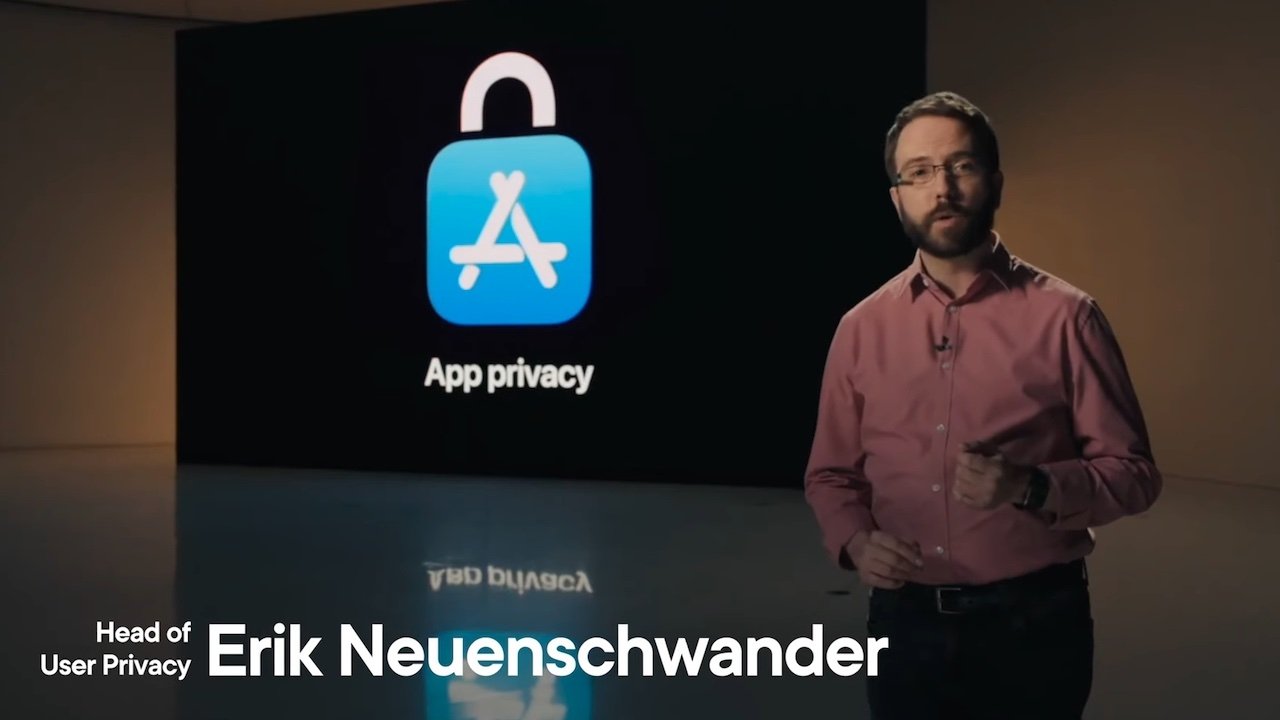Apple head of user privacy Erik Neuenschwander discussed the Cupertino tech giant's privacy policies and protections in a new deep-dive interview for Data Privacy Day.
Neuenschwander sat down with Rene Ritchie to discuss the company's privacy goals, as well as the mechanisms and policies it implements to reach those goals. In the interview, the privacy chief reiterated Apple's commitment to keeping its users' data safe, secure, and away from prying eyes.
For example, the Apple executive said that the company's pro-privacy stance has a long legacy dating back to Steve Jobs, and comes from its goal of putting the customer first.
"In that respect, when we think about our customers, we think about privacy being a fundamental human right," Neuenschwander said. "And how the only way that you're going to realize that is by designing it into everything that we build."
Neuenschwander then spoke about Apple's specific privacy policies. The company thinks about keeping user data private in a three-step system, which includes data minimization, control and transparency, and security.
For example, features like on-device intelligence allow Apple to minimize the amount of data it collects. Neuenschwander added that, if the company does collect data, it ensures that the user has control and insight into how and why that data is used. Security features like end-to-end encryption keeps data private from malicious actors or authoritarian governments.
Apple CEO Tim Cook echoed this commitment to privacy in a tweet about Data Privacy Day. He calls privacy a fundamental human right, a mantra often used by Cook when discussing the topic.
We believe privacy is a fundamental human right, and the best technology is one that people can trust. At Apple, we're constantly innovating to give our users more control over how their data is used and the choice with whom to share it. #DataPrivacyDay
— Tim Cook (@tim_cook) January 28, 2022
The Apple privacy chief also detailed some of the company's other privacy features, including the App Tracking Transparency mechanism that stops apps from tracking users across other apps and websites, and Hide My Email, which gives users more granular control over which companies or sites get access to their actual email address.
Ritchie's full interview with Neuenschwander clocks in at about 19 minutes and is well worth a watch for anyone interested in Apple's privacy and security policies.
 Mike Peterson
Mike Peterson




-xl-m.jpg)


-m.jpg)






 Thomas Sibilly
Thomas Sibilly
 Wesley Hilliard
Wesley Hilliard
 Christine McKee
Christine McKee
 Amber Neely
Amber Neely
 William Gallagher
William Gallagher
 Malcolm Owen
Malcolm Owen

 Mike Wuerthele
Mike Wuerthele








4 Comments
'Apple doesn't possess that special key to read the data' ? (5:35)
I understood Apple has a key to every account: fixitalready.eff.org/apple/#/
www.reuters.com/article/us-apple-fbi-icloud-exclusive-idUSKBN1ZK1CT
email remains unencrypted per "iCloud does not encrypt data stored on IMAP mail servers." support.apple.com/en-us/HT202303
At last check Photos auto tags every image for search - where is a global off switch...?
Why are iCloud servers required to sync local hardware ?
Apple tech confirmed Apple Watch (with biometric data) requires iCloud to (function) sync... Is this 'privacy by design' (7:15)
Is S/MIME the only Apple independent (7:30) option and could this be more easily facilitated ?
Why does remote wipe require 'Find My iPhone' location tracking to be enabled - quid pro quo 'by design'...?
Also there is the question of all the contact data & even profile photos that others put in the Contacts app without one's knowledge and is being synced remotely aka uploaded to Apple iCloud servers...?
"It's clear that Apple doesn't want to get to know you to sell your data to third parties, but it doesn't mean it doesn't want to get to know you for their own purposes."
"
"Apple CEO Tim Cook continues to pound the idea that Apple “believe[s] strongly that privacy is a basic human right.” Alphabet/Google claims similar high-mindedness. In an opinion piece posted on the same day, the Financial Times’s Brooke Masters notes that it is “risky to rely on [Apple’s or Alphabet’s] noblesse oblige,” citing Harvard law professor Shoshana Zuboff: “These commitments change with the market winds. The only thing that matters is law.” 247wallst.com/technology-3/2021/11/01/whats-up-with-apple-10-billion-for-privacy-ar-headset-coming-and-more/
Is there a lot to consider including care in interpreting the language used to describe 'policy' vs potential 'by design' that leaves reliance entirely on policy that is 'subject to change' or worse yet a hack...?
Would offering a remote user mac Apple Server Application (apps.apple.com/us/app/macos-server/id883878097?) to offer remote distributed in house sync (or even local direct connected device sync) be more private solutions for all concerned, not unlike the web itself that was designed to be 'distributed' and thus less vulnerable to attack or surveillance ?
Perhaps I am missing something...?
Individual servers more resistant to breach? I guess if you depend upon security-by-obscurity. No way I as a in-expert consumer has as much network security as Apple can hire on my behalf.